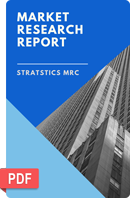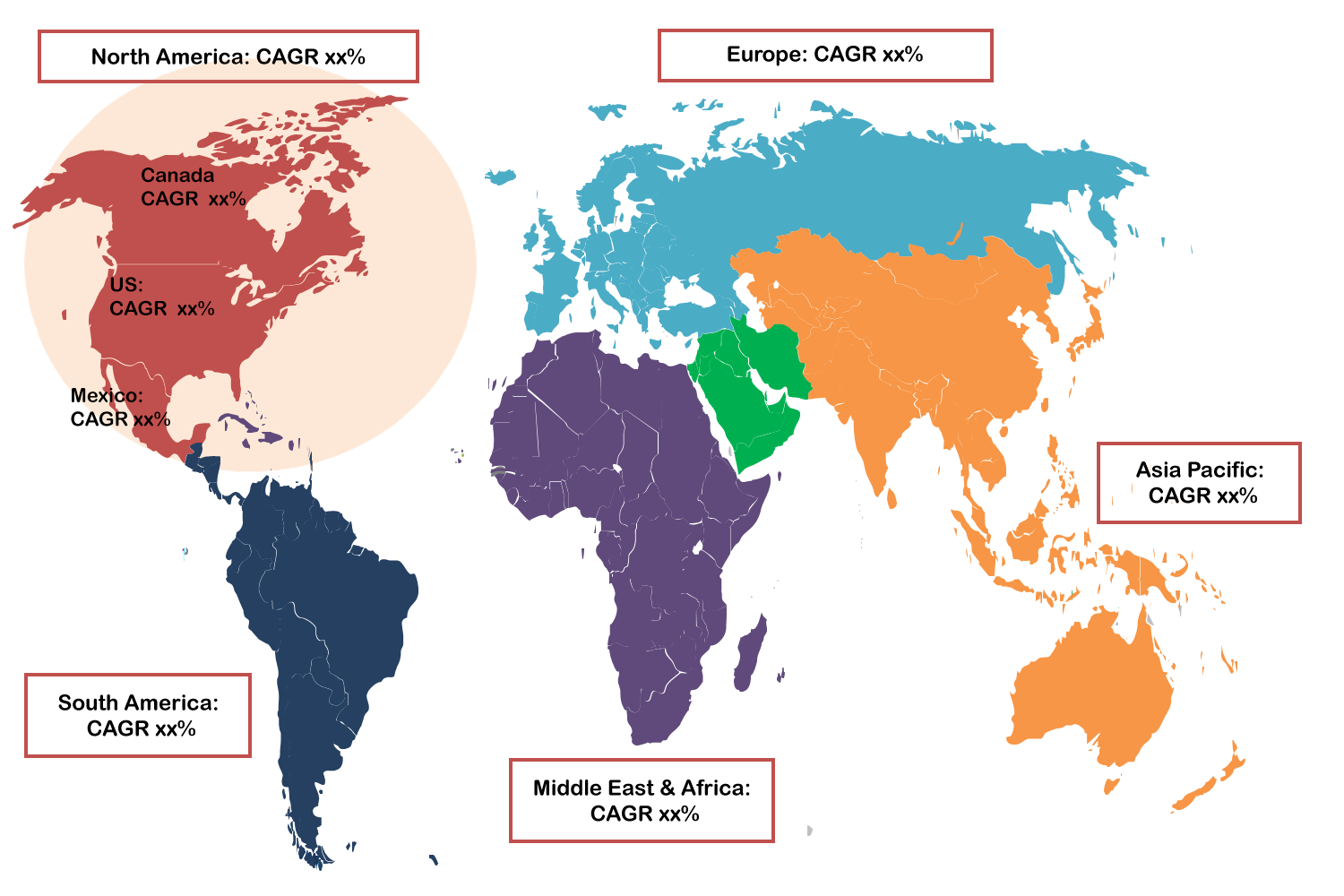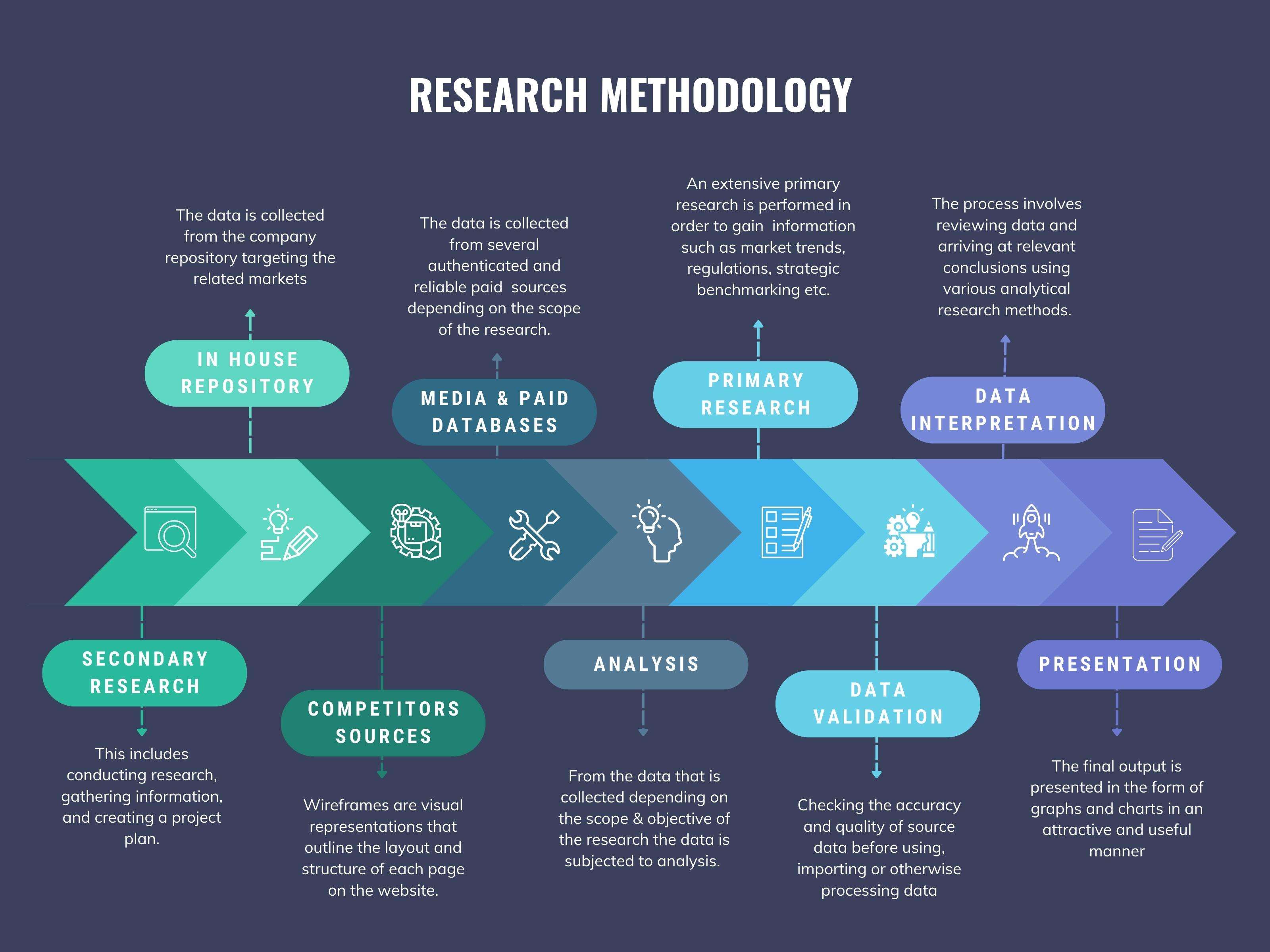
Photovoltaic Power Station Market
Photovoltaic Power Station Market Forecasts to 2032 - Global Analysis By Type (On-Grid (Grid-Tied) PV Systems, Off-Grid (Stand-Alone) PV Systems, Hybrid PV Systems, and Other Types), Mounting Type, Component, Technology, Capacity, End User and By Geography
|
Years Covered |
2024-2032 |
|
CAGR (2025-2032) |
23.8% |
|
Regions Covered |
North America, Europe, Asia Pacific, South America, and Middle East & Africa |
|
Countries Covered |
US, Canada, Mexico, Germany, UK, Italy, France, Spain, Japan, China, India, Australia, New Zealand, South Korea, Rest of Asia Pacific, South America, Argentina, Brazil, Chile, Middle East & Africa, Saudi Arabia, UAE, Qatar, and South Africa |
|
Largest Market |
Asia Pacific |
|
Highest Growing Market |
North America |
According to Stratistics MRC, the Global Photovoltaic Power Station Market is growing at a CAGR of 23.8% during the forecast period. A photovoltaic power station, also known as a solar farm or solar power plant, is a large-scale facility that generates electricity by converting sunlight into electrical energy using photovoltaic (PV) panels. These stations are typically installed on vast areas of land and are connected to the electrical grid to supply renewable energy. They play a crucial role in reducing greenhouse gas emissions and promoting sustainable, clean energy solutions worldwide.
According the U.S. Department of Energy, the country installed 26 GW AC (33 GW DC) of PV in 2023, marking a year-over-year increase of 46%.

Market Dynamics:
Driver:
Declining costs of solar panels
Advances in technology have led to lower production costs, making solar power more accessible for utility-scale projects. Government subsidies and incentives further enhance affordability, encouraging widespread adoption of photovoltaic systems. As solar panel efficiency improves, the levelized cost of electricity (LCOE) continues to decline, making solar energy highly competitive. The reduction in upfront investment requirements attracts businesses and governments to invest in solar farms. Consequently, declining costs are fueling market expansion by enabling larger-scale installations.
Restraint:
Land availability and usage conflicts
Large-scale solar projects require vast areas of land, leading to competition with agriculture, forestry, and urban development. Environmental concerns related to habitat disruption and land degradation further complicate project approvals. In densely populated regions, securing sufficient space for utility-scale solar farms becomes increasingly difficult. These constraints limit the scalability of photovoltaic power stations, slowing down growth in some regions.
Opportunity:
Rising demand for clean energy
As concerns over climate change intensify, governments and businesses are prioritizing renewable energy sources to reduce carbon emissions. Solar power is emerging as a preferred solution due to its sustainability and long-term cost advantages. Corporate commitments to carbon neutrality are driving investment in large-scale solar projects globally. Technological advancements, such as energy storage solutions, enhance the reliability and feasibility of solar power. Increasing public awareness and policy support further accelerate the adoption of photovoltaic systems.
Threat:
Lack of skilled workforce
As the industry grows, the demand for trained professionals in installation, maintenance, and system optimization is rising. A shortage of experienced engineers and technicians affects the efficiency and reliability of solar projects. Insufficient workforce training programs limit the availability of specialists needed for large-scale deployments. Without adequate skill development, project execution delays and operational inefficiencies may hinder market growth.
Covid-19 Impact
The COVID-19 pandemic disrupted supply chains and slowed down solar project installations worldwide. Restrictions on manufacturing and logistics delayed the delivery of photovoltaic components, affecting project timelines. However, the crisis also underscored the importance of energy independence and resilience, boosting interest in solar investments. As economies recovered, governments accelerated renewable energy initiatives, driving post-pandemic market growth. Overall, while the pandemic caused short-term setbacks, it reinforced long-term commitments to solar energy expansion.
The rooftop PV systems segment is expected to be the largest during the forecast period
The rooftop PV systems segment is expected to account for the largest market share during the forecast period, due to its adaptability and cost-effectiveness. Rapid urbanization and increased electricity costs are driving demand for rooftop solar installations among residential and commercial consumers. Government incentives and net metering policies encourage homeowners and businesses to invest in distributed solar solutions. The scalability of rooftop systems allows for efficient utilization of existing spaces without additional land acquisition.
The government/public sector segment is expected to have the highest CAGR during the forecast period
Over the forecast period, the government/public sector segment is predicted to witness the highest growth rate, due to policy-driven renewable energy initiatives. Governments worldwide are investing in utility-scale solar projects to meet climate targets and energy security goals. Public sector-led programs promote solar adoption through infrastructure development and subsidy support. Large-scale procurement agreements drive down costs, enabling efficient deployment of photovoltaic systems.
Region with largest share:
During the forecast period, the Asia Pacific region is expected to hold the largest market share due to its rapid industrialization and commitment to renewable energy. Countries such as China, India, and Japan are leading solar investments through ambitious capacity expansion plans. Government policies promoting solar energy subsidies and incentives drive large-scale photovoltaic installations. High electricity demand and grid modernization efforts further accelerate solar power adoption across the region.
Region with highest CAGR:
Over the forecast period, the North America region is anticipated to exhibit the highest CAGR, owing to supportive regulatory frameworks and technological innovations. Federal and state-level renewable energy policies encourage solar investment through tax credits and funding programs. The growing emphasis on de-carbonization and corporate sustainability commitments drives demand for utility-scale solar farms. Investments in research and development accelerate breakthroughs in solar technology, further boosting market expansion.

Key players in the market
Some of the key players profiled in the Photovoltaic Power Station Market include Total Energies, Adani Green Energy Ltd., Brookfield Renewable Partners, NextEra Energy, Enel Green Power, JinkoSolar Holding Co., Ltd., JA Solar Technology Co. Ltd., Trina Solar Co. Ltd., LONGi Green Energy Technology Co. Ltd., Lightsource bp, Tata Power Solar Systems Ltd., Sterling and Wilson Renewable Energy, Vikram Solar, Waaree Energies Ltd., and Azure Power.
Key Developments:
In June 2025, TotalEnergies announces the acquisition from Low Carbon, a leading renewable energy company, of a pipeline of 8 solar projects with a capacity of 350 MW and 2 battery storage projects with a capacity of 85 MW.
In September 2024, Adani Green Energy Limited (AGEL) and TotalEnergies, have announced a strategic joint venture (JV), equally owned by both entities, aimed at managing a portfolio of solar projects totaling 1,150 MW. The projects are located at the world’s largest renewable energy plant in Khavda, Gujarat. AGEL will contribute its current assets to the new JV, while TotalEnergies plans to inject USD 444 million to accelerate the development of these projects.
Types Covered:
• On-Grid (Grid-Tied) PV Systems
• Off-Grid (Stand-Alone) PV Systems
• Hybrid PV Systems
• Other Types
Mounting Types Covered:
• Ground-Mounted PV Systems
• Rooftop PV Systems
• Floating PV Systems
• Building-Integrated Photovoltaics (BIPV)
• Carports
• Other Mounting Types
Components Covered:
• PV Modules
• Inverters
• Mounting Structures
• Cables & Wiring
• Balance of System (BOS)
• Energy Storage Systems (ESS)
Technologies Covered:
• Crystalline Silicon (c-Si)
• Thin Film
Capacities Covered:
• Below 1 MW
• 1–10 MW
• 10–50 MW
• Above 50 MW
End Users Covered:
• Government/Public Sector
• NGOs or Community-led Initiatives
• Private Sector/Independent Power Producers (IPPs)
• Commercial Enterprises
• Utility Companies
• Other End Users
Regions Covered:
• North America
o US
o Canada
o Mexico
• Europe
o Germany
o UK
o Italy
o France
o Spain
o Rest of Europe
• Asia Pacific
o Japan
o China
o India
o Australia
o New Zealand
o South Korea
o Rest of Asia Pacific
• South America
o Argentina
o Brazil
o Chile
o Rest of South America
• Middle East & Africa
o Saudi Arabia
o UAE
o Qatar
o South Africa
o Rest of Middle East & Africa
What our report offers:
- Market share assessments for the regional and country-level segments
- Strategic recommendations for the new entrants
- Covers Market data for the years 2024, 2025, 2026, 2028, and 2032
- Market Trends (Drivers, Constraints, Opportunities, Threats, Challenges, Investment Opportunities, and recommendations)
- Strategic recommendations in key business segments based on the market estimations
- Competitive landscaping mapping the key common trends
- Company profiling with detailed strategies, financials, and recent developments
- Supply chain trends mapping the latest technological advancements
Free Customization Offerings:
All the customers of this report will be entitled to receive one of the following free customization options:
• Company Profiling
o Comprehensive profiling of additional market players (up to 3)
o SWOT Analysis of key players (up to 3)
• Regional Segmentation
o Market estimations, Forecasts and CAGR of any prominent country as per the client's interest (Note: Depends on feasibility check)
• Competitive Benchmarking
o Benchmarking of key players based on product portfolio, geographical presence, and strategic alliances
Table of Contents
1 Executive Summary
2 Preface
2.1 Abstract
2.2 Stake Holders
2.3 Research Scope
2.4 Research Methodology
2.4.1 Data Mining
2.4.2 Data Analysis
2.4.3 Data Validation
2.4.4 Research Approach
2.5 Research Sources
2.5.1 Primary Research Sources
2.5.2 Secondary Research Sources
2.5.3 Assumptions
3 Market Trend Analysis
3.1 Introduction
3.2 Drivers
3.3 Restraints
3.4 Opportunities
3.5 Threats
3.6 Technology Analysis
3.7 End User Analysis
3.8 Emerging Markets
3.9 Impact of Covid-19
4 Porters Five Force Analysis
4.1 Bargaining power of suppliers
4.2 Bargaining power of buyers
4.3 Threat of substitutes
4.4 Threat of new entrants
4.5 Competitive rivalry
5 Global Photovoltaic Power Station Market, By Type
5.1 Introduction
5.2 On-Grid (Grid-Tied) PV Systems
5.3 Off-Grid (Stand-Alone) PV Systems
5.4 Hybrid PV Systems
5.5 Other Types
6 Global Photovoltaic Power Station Market, By Mounting Type
6.1 Introduction
6.2 Ground-Mounted PV Systems
6.3 Rooftop PV Systems
6.4 Floating PV Systems
6.5 Building-Integrated Photovoltaics (BIPV)
6.6 Carports
6.7 Other Mounting Types
7 Global Photovoltaic Power Station Market, By Component
7.1 Introduction
7.2 PV Modules
7.3 Inverters
7.4 Mounting Structures
7.5 Cables & Wiring
7.6 Balance of System (BOS)
7.7 Energy Storage Systems (ESS)
8 Global Photovoltaic Power Station Market, By Technology
8.1 Introduction
8.2 Crystalline Silicon (c-Si)
8.2.1 Monocrystalline Silicon
8.2.2 Polycrystalline Silicon
8.2.3 Bifacial PV Modules
8.3 Thin Film
9 Global Photovoltaic Power Station Market, By Capacity
9.1 Introduction
9.2 Below 1 MW
9.3 1–10 MW
9.4 10–50 MW
9.5 Above 50 MW
10 Global Photovoltaic Power Station Market, By End User
10.1 Introduction
10.2 Government/Public Sector
10.3 NGOs or Community-led Initiatives
10.4 Private Sector/Independent Power Producers (IPPs)
10.5 Commercial Enterprises
10.6 Utility Companies
10.7 Other End Users
11 Global Photovoltaic Power Station Market, By Geography
11.1 Introduction
11.2 North America
11.2.1 US
11.2.2 Canada
11.2.3 Mexico
11.3 Europe
11.3.1 Germany
11.3.2 UK
11.3.3 Italy
11.3.4 France
11.3.5 Spain
11.3.6 Rest of Europe
11.4 Asia Pacific
11.4.1 Japan
11.4.2 China
11.4.3 India
11.4.4 Australia
11.4.5 New Zealand
11.4.6 South Korea
11.4.7 Rest of Asia Pacific
11.5 South America
11.5.1 Argentina
11.5.2 Brazil
11.5.3 Chile
11.5.4 Rest of South America
11.6 Middle East & Africa
11.6.1 Saudi Arabia
11.6.2 UAE
11.6.3 Qatar
11.6.4 South Africa
11.6.5 Rest of Middle East & Africa
12 Key Developments
12.1 Agreements, Partnerships, Collaborations and Joint Ventures
12.2 Acquisitions & Mergers
12.3 New Product Launch
12.4 Expansions
12.5 Other Key Strategies
13 Company Profiling
13.1 TotalEnergies
13.2 Adani Green Energy Ltd.
13.3 Brookfield Renewable Partners
13.4 NextEra Energy
13.5 Enel Green Power
13.6 JinkoSolar Holding Co., Ltd.
13.7 JA Solar Technology Co. Ltd.
13.8 Trina Solar Co. Ltd.
13.9 LONGi Green Energy Technology Co. Ltd.
13.10 Lightsource bp
13.11 Tata Power Solar Systems Ltd.
13.12 Sterling and Wilson Renewable Energy
13.13 Vikram Solar
13.14 Waaree Energies Ltd.
13.15 Azure Power
List of Tables
1 Global Photovoltaic Power Station Market Outlook, By Region (2024-2032) ($MN)
2 Global Photovoltaic Power Station Market Outlook, By Type (2024-2032) ($MN)
3 Global Photovoltaic Power Station Market Outlook, By On-Grid (Grid-Tied) PV Systems (2024-2032) ($MN)
4 Global Photovoltaic Power Station Market Outlook, By Off-Grid (Stand-Alone) PV Systems (2024-2032) ($MN)
5 Global Photovoltaic Power Station Market Outlook, By Hybrid PV Systems (2024-2032) ($MN)
6 Global Photovoltaic Power Station Market Outlook, By Other Types (2024-2032) ($MN)
7 Global Photovoltaic Power Station Market Outlook, By Mounting Type (2024-2032) ($MN)
8 Global Photovoltaic Power Station Market Outlook, By Ground-Mounted PV Systems (2024-2032) ($MN)
9 Global Photovoltaic Power Station Market Outlook, By Rooftop PV Systems (2024-2032) ($MN)
10 Global Photovoltaic Power Station Market Outlook, By Floating PV Systems (2024-2032) ($MN)
11 Global Photovoltaic Power Station Market Outlook, By Building-Integrated Photovoltaics (BIPV) (2024-2032) ($MN)
12 Global Photovoltaic Power Station Market Outlook, By Carports (2024-2032) ($MN)
13 Global Photovoltaic Power Station Market Outlook, By Other Mounting Types (2024-2032) ($MN)
14 Global Photovoltaic Power Station Market Outlook, By Component (2024-2032) ($MN)
15 Global Photovoltaic Power Station Market Outlook, By PV Modules (2024-2032) ($MN)
16 Global Photovoltaic Power Station Market Outlook, By Inverters (2024-2032) ($MN)
17 Global Photovoltaic Power Station Market Outlook, By Mounting Structures (2024-2032) ($MN)
18 Global Photovoltaic Power Station Market Outlook, By Cables & Wiring (2024-2032) ($MN)
19 Global Photovoltaic Power Station Market Outlook, By Balance of System (BOS) (2024-2032) ($MN)
20 Global Photovoltaic Power Station Market Outlook, By Energy Storage Systems (ESS) (2024-2032) ($MN)
21 Global Photovoltaic Power Station Market Outlook, By Technology (2024-2032) ($MN)
22 Global Photovoltaic Power Station Market Outlook, By Crystalline Silicon (c-Si) (2024-2032) ($MN)
23 Global Photovoltaic Power Station Market Outlook, By Monocrystalline Silicon (2024-2032) ($MN)
24 Global Photovoltaic Power Station Market Outlook, By Polycrystalline Silicon (2024-2032) ($MN)
25 Global Photovoltaic Power Station Market Outlook, By Bifacial PV Modules (2024-2032) ($MN)
26 Global Photovoltaic Power Station Market Outlook, By Thin Film (2024-2032) ($MN)
27 Global Photovoltaic Power Station Market Outlook, By Capacity (2024-2032) ($MN)
28 Global Photovoltaic Power Station Market Outlook, By Below 1 MW (2024-2032) ($MN)
29 Global Photovoltaic Power Station Market Outlook, By 1–10 MW (2024-2032) ($MN)
30 Global Photovoltaic Power Station Market Outlook, By 10–50 MW (2024-2032) ($MN)
31 Global Photovoltaic Power Station Market Outlook, By Above 50 MW (2024-2032) ($MN)
32 Global Photovoltaic Power Station Market Outlook, By End User (2024-2032) ($MN)
33 Global Photovoltaic Power Station Market Outlook, By Government/Public Sector (2024-2032) ($MN)
34 Global Photovoltaic Power Station Market Outlook, By NGOs or Community-led Initiatives (2024-2032) ($MN)
35 Global Photovoltaic Power Station Market Outlook, By Private Sector/Independent Power Producers (IPPs) (2024-2032) ($MN)
36 Global Photovoltaic Power Station Market Outlook, By Commercial Enterprises (2024-2032) ($MN)
37 Global Photovoltaic Power Station Market Outlook, By Utility Companies (2024-2032) ($MN)
38 Global Photovoltaic Power Station Market Outlook, By Other End Users (2024-2032) ($MN)
Note: Tables for North America, Europe, APAC, South America, and Middle East & Africa Regions are also represented in the same manner as above.
List of Figures
RESEARCH METHODOLOGY

We at ‘Stratistics’ opt for an extensive research approach which involves data mining, data validation, and data analysis. The various research sources include in-house repository, secondary research, competitor’s sources, social media research, client internal data, and primary research.
Our team of analysts prefers the most reliable and authenticated data sources in order to perform the comprehensive literature search. With access to most of the authenticated data bases our team highly considers the best mix of information through various sources to obtain extensive and accurate analysis.
Each report takes an average time of a month and a team of 4 industry analysts. The time may vary depending on the scope and data availability of the desired market report. The various parameters used in the market assessment are standardized in order to enhance the data accuracy.
Data Mining
The data is collected from several authenticated, reliable, paid and unpaid sources and is filtered depending on the scope & objective of the research. Our reports repository acts as an added advantage in this procedure. Data gathering from the raw material suppliers, distributors and the manufacturers is performed on a regular basis, this helps in the comprehensive understanding of the products value chain. Apart from the above mentioned sources the data is also collected from the industry consultants to ensure the objective of the study is in the right direction.
Market trends such as technological advancements, regulatory affairs, market dynamics (Drivers, Restraints, Opportunities and Challenges) are obtained from scientific journals, market related national & international associations and organizations.
Data Analysis
From the data that is collected depending on the scope & objective of the research the data is subjected for the analysis. The critical steps that we follow for the data analysis include:
- Product Lifecycle Analysis
- Competitor analysis
- Risk analysis
- Porters Analysis
- PESTEL Analysis
- SWOT Analysis
The data engineering is performed by the core industry experts considering both the Marketing Mix Modeling and the Demand Forecasting. The marketing mix modeling makes use of multiple-regression techniques to predict the optimal mix of marketing variables. Regression factor is based on a number of variables and how they relate to an outcome such as sales or profits.
Data Validation
The data validation is performed by the exhaustive primary research from the expert interviews. This includes telephonic interviews, focus groups, face to face interviews, and questionnaires to validate our research from all aspects. The industry experts we approach come from the leading firms, involved in the supply chain ranging from the suppliers, distributors to the manufacturers and consumers so as to ensure an unbiased analysis.
We are in touch with more than 15,000 industry experts with the right mix of consultants, CEO's, presidents, vice presidents, managers, experts from both supply side and demand side, executives and so on.
The data validation involves the primary research from the industry experts belonging to:
- Leading Companies
- Suppliers & Distributors
- Manufacturers
- Consumers
- Industry/Strategic Consultants
Apart from the data validation the primary research also helps in performing the fill gap research, i.e. providing solutions for the unmet needs of the research which helps in enhancing the reports quality.
For more details about research methodology, kindly write to us at info@strategymrc.com
Frequently Asked Questions
In case of any queries regarding this report, you can contact the customer service by filing the “Inquiry Before Buy” form available on the right hand side. You may also contact us through email: info@strategymrc.com or phone: +1-301-202-5929
Yes, the samples are available for all the published reports. You can request them by filling the “Request Sample” option available in this page.
Yes, you can request a sample with your specific requirements. All the customized samples will be provided as per the requirement with the real data masked.
All our reports are available in Digital PDF format. In case if you require them in any other formats, such as PPT, Excel etc you can submit a request through “Inquiry Before Buy” form available on the right hand side. You may also contact us through email: info@strategymrc.com or phone: +1-301-202-5929
We offer a free 15% customization with every purchase. This requirement can be fulfilled for both pre and post sale. You may send your customization requirements through email at info@strategymrc.com or call us on +1-301-202-5929.
We have 3 different licensing options available in electronic format.
- Single User Licence: Allows one person, typically the buyer, to have access to the ordered product. The ordered product cannot be distributed to anyone else.
- 2-5 User Licence: Allows the ordered product to be shared among a maximum of 5 people within your organisation.
- Corporate License: Allows the product to be shared among all employees of your organisation regardless of their geographical location.
All our reports are typically be emailed to you as an attachment.
To order any available report you need to register on our website. The payment can be made either through CCAvenue or PayPal payments gateways which accept all international cards.
We extend our support to 6 months post sale. A post sale customization is also provided to cover your unmet needs in the report.
Request Customization
We offer complimentary customization of up to 15% with every purchase. To share your customization requirements, feel free to email us at info@strategymrc.com or call us on +1-301-202-5929. .
Please Note: Customization within the 15% threshold is entirely free of charge. If your request exceeds this limit, we will conduct a feasibility assessment. Following that, a detailed quote and timeline will be provided.
WHY CHOOSE US ?

Assured Quality
Best in class reports with high standard of research integrity

24X7 Research Support
Continuous support to ensure the best customer experience.

Free Customization
Adding more values to your product of interest.

Safe & Secure Access
Providing a secured environment for all online transactions.

Trusted by 600+ Brands
Serving the most reputed brands across the world.
